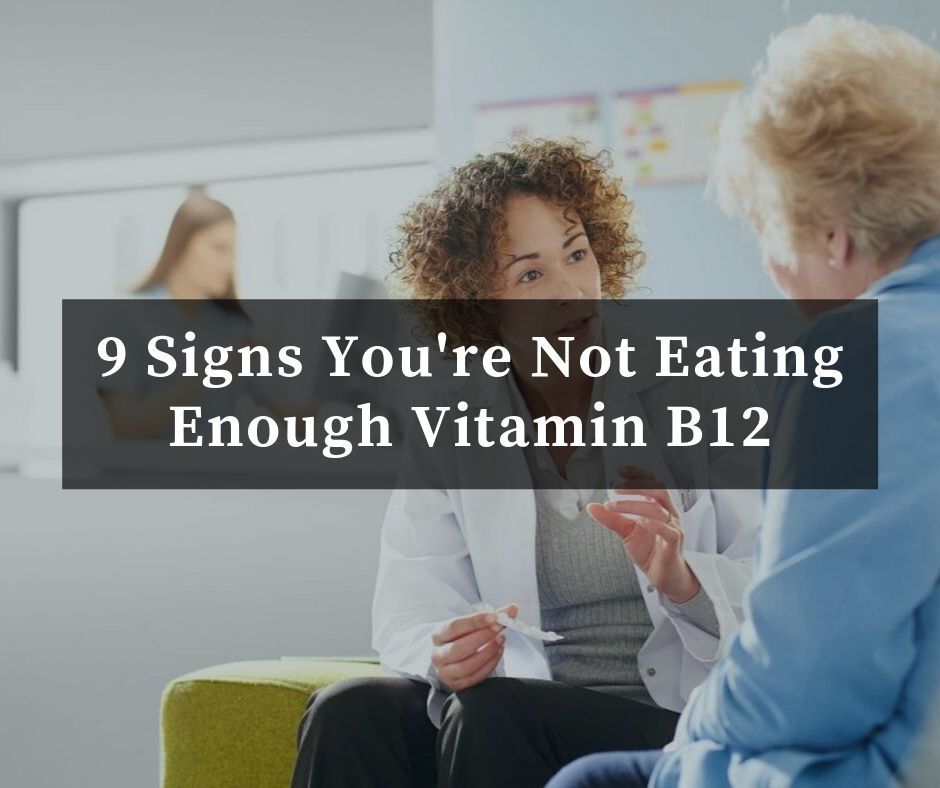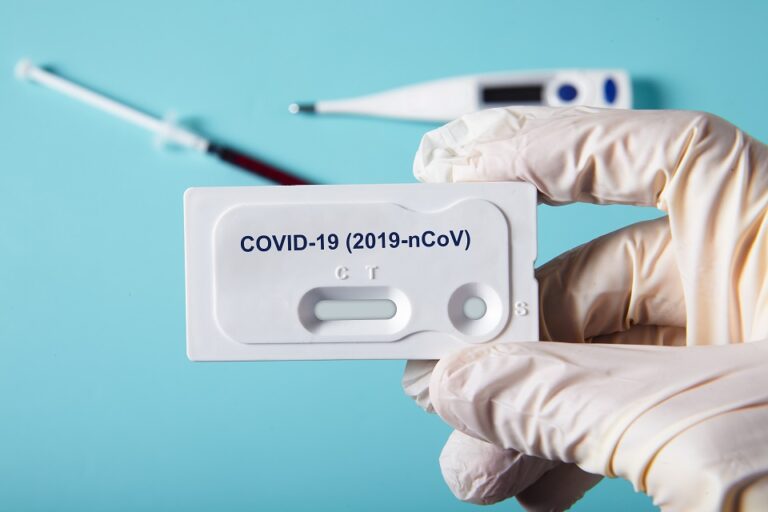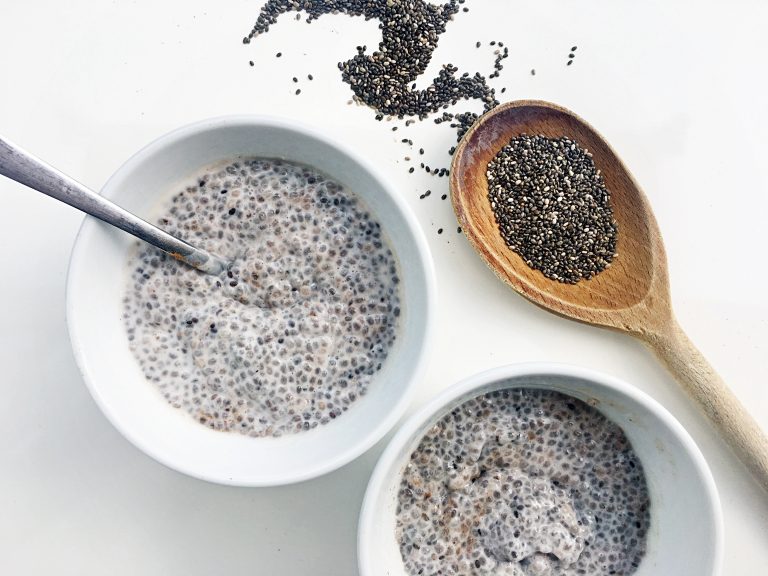
There are eight B vitamins, and all of them give your body energy by helping to convert food into fuel. Vitamin B12 is especially important in producing DNA and maintaining healthy nerve and blood cells. One way it protects blood cells is by preventing megaloblastic anemia, a condition that reduces the amount of oxygen your red blood cells can carry.
The recommended daily amount of B12 is 2.4 mcg, and most people consume that much naturally by eating healthy amounts of protein. A deficiency occurs when vitamin B12 isn’t a regular part of someone’s diet or when someone can’t absorb the nutrient properly. Here are some vitamin B12 deficiency symptoms you should be on the lookout for.
Your hands or feet feel numb and tingling
Vitamin B12 helps make myelin, the protective covering for nerves. Without it, your nerves could get damaged since they aren’t being properly formed. “When nerves start shrinking, you start going from normal sensations to pins and needles,” says Sonya Angelone, RDN, spokesperson for the Academy of Nutrition and Dietetics. Pins and needles could also be a sign of a pinched nerve.
You’re exhausted
Feeling overly tired, weak, or short of breath? Your blood cells could be the culprit. Since vitamin B12 plays an important role with blood cells, one of the vitamin B12 deficiency symptoms you could experience is megaloblastic anemia. The body starts producing large, immature red blood cells that can’t carry oxygen throughout the body. That lack of oxygen makes you feel run down.
Your skin is pale
When your skin starts losing its healthy glow, your chances of having a vitamin deficiency grow. If you’re anemic, “you’re getting less efficient large cells that aren’t doing the job of carrying oxygen and oxygenating the blood, so that can lead to paleness,” Angelone says.
You’re vegan or vegetarian
Plants don’t contain B12. The vitamin is only found in meat, eggs, poultry, and products that come directly from animals. That means vegetarians and especially vegans are at high risk for a vitamin B12 deficiency.
However, you can still take supplements and even some fortified grains—certain breakfast cereals and nutritional yeasts—to get this necessary nutrient. Angelone cautions to check food labels before buying these products. Some organic versions don’t include B12.
You have diabetes
Although not everyone who has diabetes will also show vitamin B12 deficiency symptoms, researchers are becoming increasingly more aware of a risk for those who have type 1 or type 2 diabetes. One analysis involving 27 study centers across the United States found an increased risk of low B12 levels in people with type 2 diabetes on long-term treatment with metformin.
In these cases, doctors may prescribe a daily 1,000 mcg supplement of B12. People with type 1 diabetes can develop pernicious anemia, due to the destruction of gastrin-producing cells. These cells also produce intrinsic factor which is needed to absorb vitamin B12.
You take medicine for heartburn
Prescription meds to reduce stomach acid bring much-needed relief to people with frequent heartburn. But that relief comes at a price. Vitamin B12 needs stomach acid to detach it from its original protein so it can be absorbed into your system.
Otherwise, it just continues down your digestive track, and you’re left with none of the benefits. “All these acid blocker medications that people take? Those decrease B12 absorption,” Angelone says. “It decreases nutrient absorption and then you get all these secondary problems because of that.”
You’re depressed
Serotonin is a neurotransmitter that keeps your brain and mood functioning correctly, and researchers believe a deficit in this chemical can lead to depression, one of the vitamin B12 deficiency symptoms to watch for.
Vitamin B12 improves neurotransmitter production and communication between nerves, so a shortage in B12 could also mean a shortage in serotonin. “If somebody is depressed, that may be that they don’t have enough available serotonin, but it may be that they’re not making enough because they don’t have the building blocks to make it. And B12 is one of the building blocks,” Angelone says.
You’re becoming forgetful
Since vitamin B12 works closely with metabolic processes in the brain, a deficiency can lead to memory loss and even dementia symptoms, especially in the elderly. Rush University Medical Center studied 121 people age 65 years or older who had signs of a B12 deficiency.
Researchers followed up four and a half years later and found that participants who exhibited four out of five signs of a B12 deficiency were at a higher risk for getting low cognitive test scores and smaller total brain volumes. “If your cognitive decline is related to diet and B12 deficiency, then that’s easily correctable,” Angelone assures.
You’re over age 50
It’s normal for the body to produce less stomach acid as we age. But since that acid is needed to absorb B12, people over 50 may not be getting the right amount of this vitamin. “One of the reasons they’re B12 deficient is that they don’t have enough stomach acid, and they just aren’t able to break off that B12 and absorb it,” Angelone says.
Talk to your doctor about a possible supplement or dietary options.

























